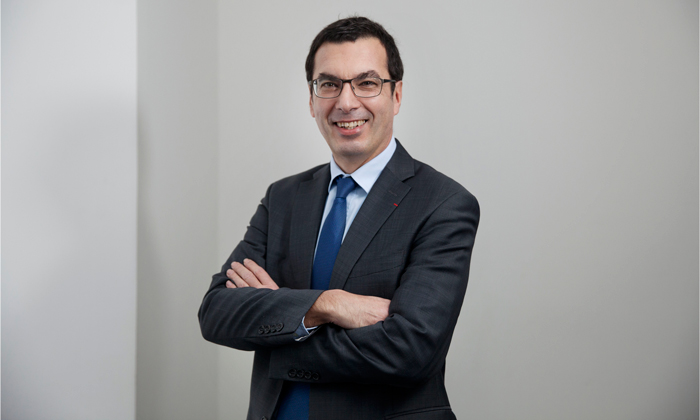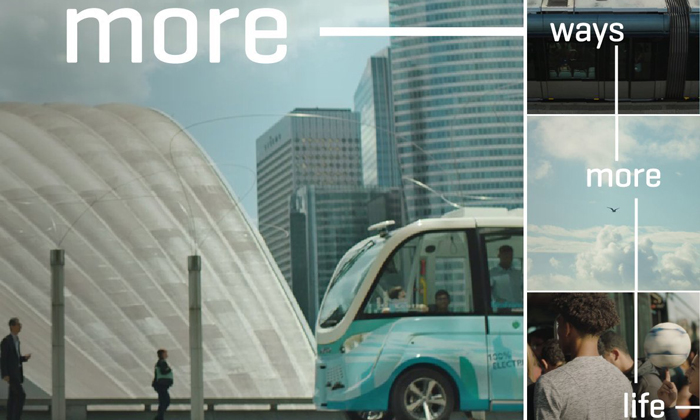An interview with Jean-Pierre Farandou, Executive Chairman of Keolis Group
- Like
- Digg
- Del
- Tumblr
- VKontakte
- Buffer
- Love This
- Odnoklassniki
- Meneame
- Blogger
- Amazon
- Yahoo Mail
- Gmail
- AOL
- Newsvine
- HackerNews
- Evernote
- MySpace
- Mail.ru
- Viadeo
- Line
- Comments
- Yummly
- SMS
- Viber
- Telegram
- Subscribe
- Skype
- Facebook Messenger
- Kakao
- LiveJournal
- Yammer
- Edgar
- Fintel
- Mix
- Instapaper
- Copy Link
Posted: 8 November 2017 | Intelligent Transport | No comments yet
Intelligent Transport speaks to Jean-Pierre Farandou, Executive Chairman of Keolis Group about the company’s new brand identity and the future of public transport.


Could you tell us more about Keolis’ new brand identity?
Well, mobility is changing. We’re talking about the third mobility revolution following the train in the 19th century and the car in the 20th century. This transformation is being driven by rapid urbanisation – 66 per cent of the world’s population will live in urban areas by 2050 compared with 54 per cent today and ever more digitalisation across all aspects of our lives.
We are working hard to keep pace with the increasing demands of our customers and the emergence of new players (private hire companies, car manufacturers) challenging the traditional operators of the mobility market.
As we saw the need for a new approach and strategy for the business, thus the natural conclusion was to refresh and reinvigorate the brand. We kept the same name to build on our reputation and history – we became Keolis 16 years ago and in that time expanded to operate across 16 countries worldwide.
Our new logo has a much stronger visual appeal and reflects an international brand that embodies flexibility, strength and modernity. The new blue represents technology and innovation and the grey, our strong presence in local communities. Our new signature, ‘more ways, more life’, means that we want to provide more mobility and give people more freedom in their lives to engage in their communities.


Keolis has a new brand identity with the motto ‘more ways, more life’ (credit: Keolis Group Twitter)
What do you think is the future for public transport with new mobilities and technologies being developed at a rapid rate?
I am very optimistic and excited by what the future promises. As we recognise the changing needs of passengers, we will have the opportunity to meet their needs in a more personal and direct manner. Mobility as a Service (MaaS) is and will continue to be the way of the future for meeting the demands of the market. At Keolis we have identified the needs of the new market into four distinct areas and plan and develop our offer based around these. For us, the future of mobility will be connected, autonomous, shared and electric:
- Connected: Connecting vehicles to Wi-Fi to optimise mobility services and make the journey more integrated; connecting vehicles with each other in a multimodal vision to provide new modes, new routes, and optimise the delivery of these services; and connecting passengers to simplify the customer experience thanks to digital applications which guide them during their journey
- Autonomous: Automation creates new mobility solutions that are safer, more reliable and more economical
- Shared: Tomorrow’s mobility will be ‘on demand’ thanks to a shared vehicle offer with a high quality of service, to reduce single occupancy driving and thus reduce road congestion as our cities grow
- Electric: Tomorrow’s mobility needs to be more sustainable and focused on using clean energy.
In this context, Keolis’ role is to give the keys to territories. We’re talking about a concept we call ‘clés’ (the French for keys):
- C is for citizens, because there are no smart cities without smart citizens. We need to move towards a new form of collaborative and participative governance. People now expect their opinion to be taken into account when building new infrastructure, introducing new transport modes and changing lifestyle trends, etc. Keolis wants to integrate this ‘citizen expertise’ into its global mobility offer
- L is for liberty, because thanks largely to digitalisation, citizens now want the freedom to choose when, where and how they travel, safely and at any time
- E is for economical, because if we want to encourage people to take public transport, we need to offer services that are affordable for everyone
- S is for simple, because the more efficient mobility solutions are, the more attractive they become.
From the many new transport innovations and systems that are being developed (autonomous shuttles, shared transportation, electric transportation, MaaS etc) what is Keolis most excited about and what is its main impact on the way we travel?
There are three areas of innovation that excites us. The first is the development of digital solutions to support travel. At Keolis we have developed many solutions across the business, but we are particularly proud of our all-in-one digital solution called ‘Plan Book Ticket’.
This allows users to plan their journey and purchase and validate tickets via a single app. We are already using this widely across our business in France to enhance networks that includes: Lille; Bordeaux; Montargis; Orléans; Brest; Amiens; Quimper; Chateauroux; and Saint-Malo. Similar digital apps have been developed by Keolis locally in different parts of the world through its subsidiaries in Boston (US), Montreal (Canada), and in the Netherlands.
Secondly, there is the development of the electric bus which will provide improved sustainability as it is embraced by communities. We are currently testing electric buses in different cities in France and operating electric buses in Sweden and the United States.
Finally, with our work around autonomous electric vehicles with Navya over the past two years. This is a fast-developing area of mobility and I am pleased to say that we are at the start of its development to provide new mobilities to meet future demand. We are leading the way in their testing for passenger use with trials in France, Denmark, the UK, the U.S., and Australia, either planned or taken place.
In what way is Keolis making sure it is at the forefront of transport technology?
We are working with academic institutions and think tanks to map the future needs of communities. This year we have published a large research project on world mobility trends in digital apps. This has helped us to speak with both current and prospective customers about the impact of future needs in the area of digital to support these.
An essential aspect of the group’s innovation strategy and growth in new urban mobility solutions is our partnership with start-ups. Whether private driver services, car-pooling, car or bike sharing, driverless shuttles, or urban cable cars, the group is committed to all transport modes that will facilitate the mobility of tomorrow. For example, with LeCab, our partner around private-driver service solutions, this year we signed a deal with Via to launch a unique shared transport service in Paris.
Another example is the very recent partnership we signed with Famoco, a leader in secure professional terminals, to accelerate the digitisation of transport ticketing. We will focus on the development of a new generation of ticket validator which will result in reduced operational costs and greater ease of use. I think this gives a flavour of the way we are moving to work in all new areas that impact on mobilities.
What do you believe is Keolis’ USP in a more crowded marketplace?
Apart from our obvious operational experience across the many different modes demanded by today’s customers, we see our USP as ensuring the efficient integration of all the elements required in a 21st century journey. We are collaborators with the Public Transport Authorities to provide not only services but a vision for their future networks through some well-established in-house analytical tools and we desire to go beyond the traditional partnership working to create real value for the tax payer and sustainable social and economic communities.
Biography
Jean-Pierre Farandou has been Executive Chairman of the Keolis Group since 2012.
In addition to his current role, Jean-Pierre Farandou served as President of the GIE Objectif Transport Public created by the Transportation Authorities Association (GART) from 2013-2015 and President of the Public and Rail Transport Union (UTP) from 2014 to 2017 in order to promote public transport and the development of sustainable mobility.
Previously, Jean-Pierre Farandou was a member of the SNCF Executive Committee and Deputy General Manager at the SNCF corporate level in charge of organisation and change management.
In 2006, he served as General Manager of SNCF’s main division, ‘SNCF Proximités’ and director of the Keolis board.
Jean-Pierre Farandou was also previously Managing Director of Keolis Lyon. Prior to that, he was Regional Manager at SNCF Rhône-Alpes and Managing Director at Thalys International.
Related topics
Alternative Power, Connected & Autonomous Vehicles, Multimodality, On-Demand Transport, Passenger Experience
Related modes
Bus & Coach
Related organisations
Keolis Group








